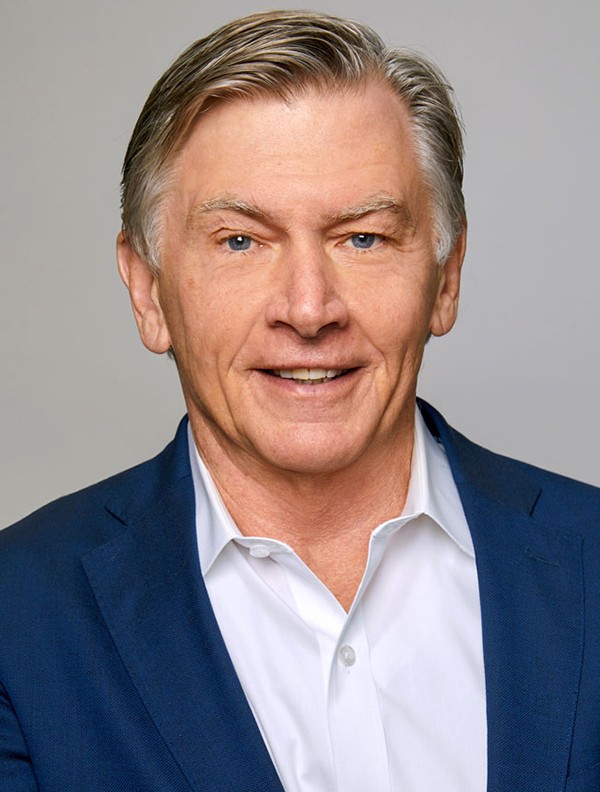Gift to establish Paul Rubacha Department of Real Estate
By Tom Fleischman, Cornell Chronicle
A $30 million gift from Paul Rubacha ’72, MBA ’73, will create an innovative, multicollege department of real estate, uniting partners across academia and industry, and building on Cornell’s strengths in engaged learning and impact-focused scholarship to increase opportunities for students and advance the field.
The Cornell Board of Trustees voted May 26 to approve the Paul Rubacha Department of Real Estate, to be managed between the College of Architecture, Art and Planning and the Cornell SC Johnson College of Business.
“I’m deeply grateful to Paul for his support, which is allowing us to strengthen Cornell’s academic distinction in so many exciting ways,” said President Martha E. Pollack. “The Paul Rubacha Department of Real Estate will open tremendous new possibilities for our faculty and students: enabling new collaborations across disciplines, with industry practitioners, and between programs in Ithaca and New York City.”
The new department will expand and enhance a program that integrates finance, development and the built environment in an unprecedented way.
“Formally combining these disciplines will create a thoughtful real-estate education unlike any other program in the country – one that’s as focused on design and development as it is on the balance sheet,” Provost Michael I. Kotlikoff said. “Combining faculty and staff expertise from the SC Johnson College of Business and the College of Architecture, Art and Planning will elevate Cornell’s existing array of real estate education, research and outreach.”
Rubacha, partner and co-founder at Ashley Capital, one of the largest privately held industrial real estate investment companies in the U.S, credited the late John Reps, M.R.P. ’47, professor emeritus and former chair of the Department of City and Regional Planning, with setting him on a path to success in real estate. He’s hopeful his gift will catalyze similar success for generations of students to come.
“This is an opportunity for me to say thanks to the university for much of what it’s done for me, professionally and personally,” he said. “And I hope that by doing this, it will further strengthen the real estate education program at the university, and provide similar opportunities for scores of other students going forward.”
Rubacha’s gift will enable Cornellians to explore new lines of inquiry and positively impact the real estate field and its related disciplines, said Meejin Yoon ’95, the Gale and Ira Drukier Dean of AAP.
“This joint initiative in real estate education at Cornell will further deepen critical areas of expertise in the built environment,” Yoon said. “Creating a joint department that draws together real estate finance and real estate development will provide invaluable opportunities for students as they become leaders in the field and contribute to the shaping of our cities and communities.”
The Baker Program in Real Estate, already jointly administered by the SC Johnson College and AAP, will serve as the new department’s primary professional master’s degree-granting program. Over time, the department will add academic offerings, including a research-focused master’s/Ph.D. program, as well as collaborations with Cornell colleges in Ithaca and New York City.
“The new department will ensure that Cornell provides the richest-possible applied instruction and opportunities to students across campus,” said Andrew Karolyi, the Charles Field Knight Dean of the SC Johnson College. “It will offer expanded industry and alumni engagement, incentivize innovative collaborations and advance the larger field and the future of real estate programs and pursuits at Cornell.”
The new department will boost recruitment of faculty around signature themes and emerging priorities, leading to cross-disciplinary ideas, research and networks and more adaptive programs that respond to emerging industry needs and student interests, administrators said.
It will add dedicated core department faculty, in addition to the 22 faculty currently contributing a portion of their teaching time toward the Baker Program, along with professors of practice and other non-tenure track faculty across Ithaca and New York City.
Rubacha’s gift includes $25 million for establishment of the department and $5 million to incentivize others to contribute through a matching fund challenge.
“I’ve been fortunate that Cornell gave me some wonderful opportunities while I was a student,” he said. “And even following graduation, those wonderful opportunities to participate in university activities and benefit from what the university has to offer have continued.”
Media Contact
Get Cornell news delivered right to your inbox.
Subscribe

